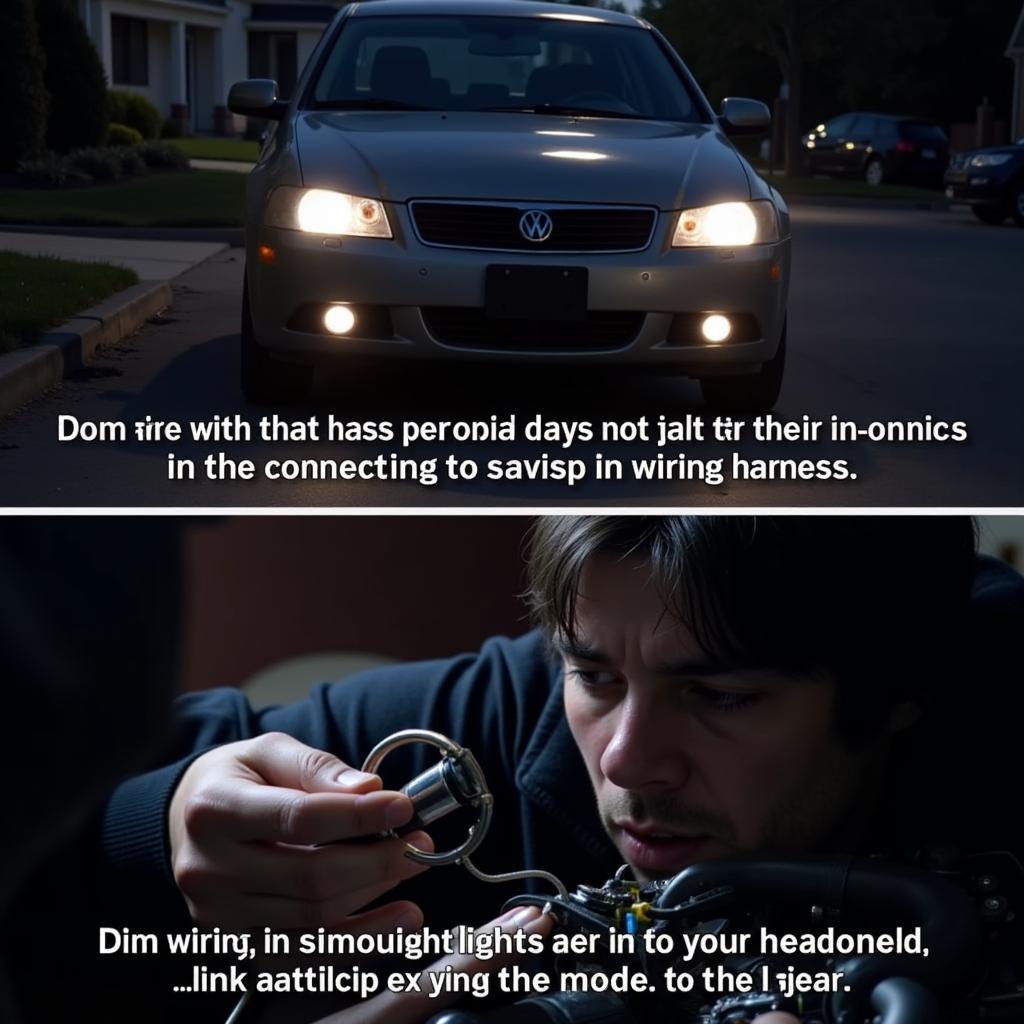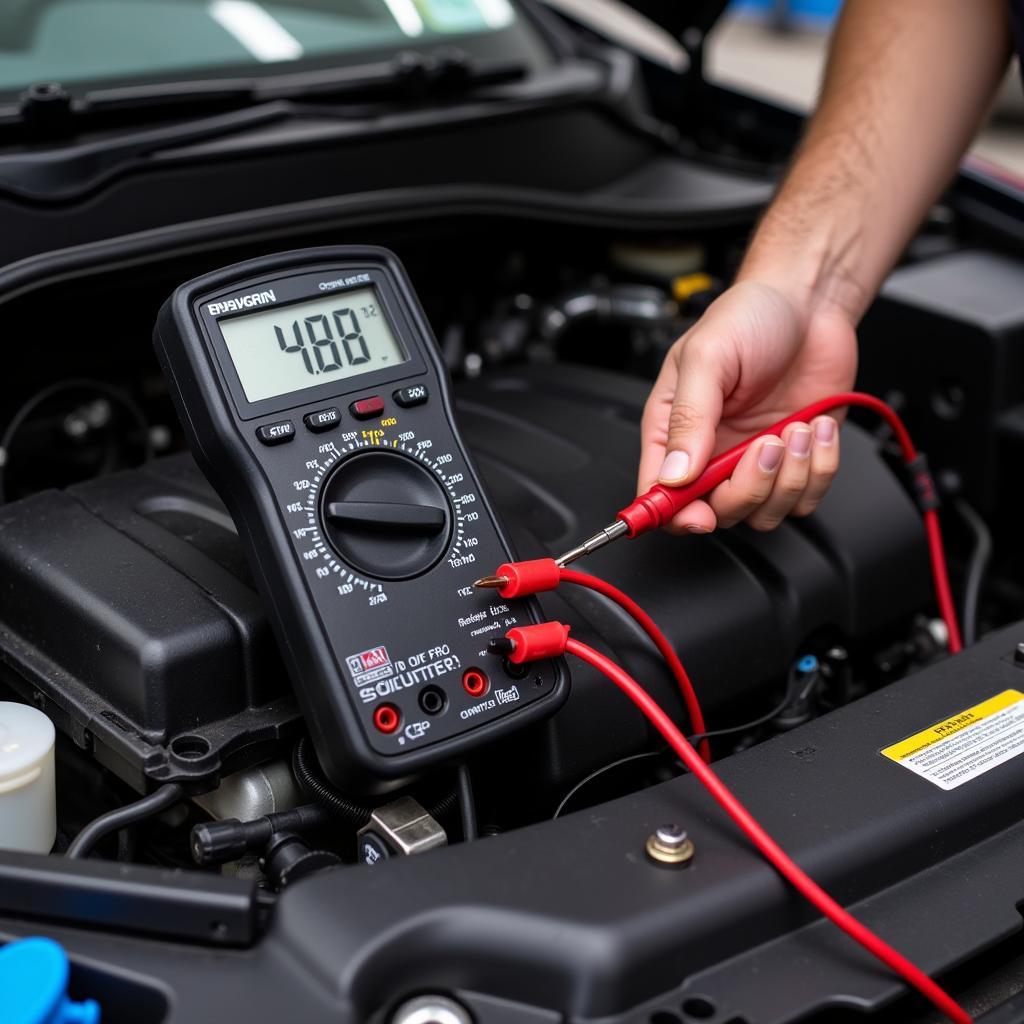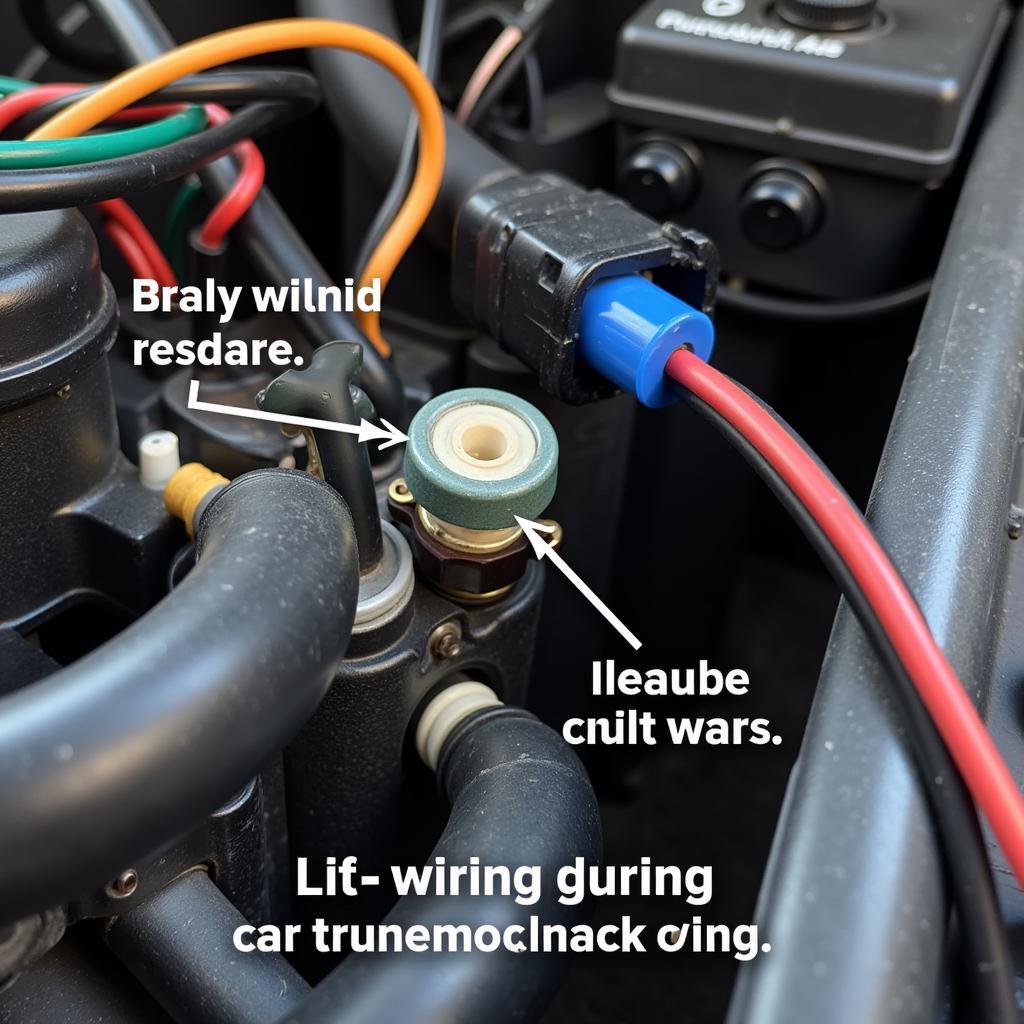Car wiring problems can be a real headache, leading to frustrating malfunctions and even safety hazards. Understanding the symptoms of these issues is crucial for effective troubleshooting and timely repairs. This guide will equip car owners, mechanics, and technicians with the knowledge to diagnose and address common car wiring problems.
Electrical systems are the backbone of modern vehicles, controlling everything from the engine and lights to the entertainment system and safety features. When wiring issues arise, the symptoms can manifest in various ways, often making it difficult to pinpoint the root cause. A faulty wire, a loose connection, or a corroded terminal can trigger a cascade of problems, impacting different parts of your car.
Similar to car wont start common problems, electrical issues can leave you stranded. Identifying the signs early on can prevent further damage and save you time and money in the long run. This guide covers a wide range of car wiring problem symptoms, from the obvious to the more subtle, empowering you to take the necessary steps to resolve them.
Common Car Wiring Problems Symptoms: What to Look For
Electrical problems can be tricky because they often present with intermittent issues. One moment everything works fine, the next, something goes haywire. This can make diagnosis challenging, requiring a systematic approach. Here are some of the most frequent Car Wiring Problems Symptoms:
- Dim or flickering lights: This could indicate a failing alternator, a loose connection in the wiring harness, or a problem with the light switch itself.
- Frequent blown fuses: Recurring blown fuses often point to a short circuit somewhere in the wiring system. This requires immediate attention to prevent further damage.
- Burning smell: A distinct burning smell, especially from the dashboard or engine compartment, is a serious warning sign. It could signal overheating wires, melted insulation, or even a potential fire hazard.
- Malfunctioning accessories: Problems with power windows, radio, air conditioning, or other electrical accessories can be attributed to wiring issues.
- Starting problems: If your car struggles to start or won’t crank at all, a faulty ignition switch, starter motor wiring, or a corroded battery terminal could be the culprit.
 Dim and Flickering Lights Indicate Car Wiring Problems
Dim and Flickering Lights Indicate Car Wiring Problems
Diagnosing Car Wiring Problems: A Step-by-Step Approach
Diagnosing car wiring problems requires a methodical approach. Here’s a step-by-step guide to help you troubleshoot effectively:
- Check the fuses: Start by inspecting the fuse box for any blown fuses. Replace any blown fuses with the correct amperage rating.
- Inspect the battery terminals: Ensure the battery terminals are clean and tight. Corrosion can disrupt the electrical connection and lead to various problems.
- Examine the wiring harness: Visually inspect the wiring harness for any signs of damage, such as cuts, fraying, or melted insulation.
- Use a multimeter: A multimeter is a valuable tool for testing the continuity and voltage of electrical circuits. This can help pinpoint the location of a short circuit or open circuit.
- Consult a wiring diagram: Refer to your car’s wiring diagram to understand the complex network of electrical circuits and identify potential problem areas.
This process is similar to troubleshooting lincoln town car new alternator problems, where you need to systematically eliminate possible causes.
 Mechanic Using Multimeter to Diagnose Car Wiring Issues
Mechanic Using Multimeter to Diagnose Car Wiring Issues
Preventing Car Wiring Problems: Proactive Measures
Prevention is always better than cure. Taking proactive steps can help prevent car wiring problems and extend the life of your vehicle’s electrical system:
- Regular inspections: Periodically inspect your car’s wiring for any signs of wear and tear.
- Protect the wiring: Use protective coverings or conduits to shield wiring from exposure to heat, moisture, and other environmental factors.
- Proper installation: Ensure any aftermarket electrical accessories are installed correctly by a qualified technician.
- Address minor issues promptly: Don’t ignore minor electrical glitches. Addressing them early can prevent them from escalating into major problems.
Just as with understanding problems with mazda car, regular maintenance and proactive care can prevent many common electrical issues.
 Inspecting a Car Wiring Harness for Damage
Inspecting a Car Wiring Harness for Damage
Conclusion: Staying Ahead of Car Wiring Problems
Understanding the symptoms of car wiring problems is essential for maintaining your vehicle’s reliability and safety. By being proactive and addressing issues promptly, you can prevent costly repairs and ensure your car’s electrical system functions flawlessly. If you’re experiencing any of the symptoms mentioned above, it’s crucial to seek professional assistance.
Connect with Autotippro for expert advice and solutions for all your car wiring needs. Our team of experienced technicians is dedicated to providing top-notch service and ensuring your car’s electrical system is in optimal condition.
AutoTipPro Contact Information:
Phone: +1 (641) 206-8880
Office: 500 N St Mary’s St, San Antonio, TX 78205, United States
FAQ: Common Questions about Car Wiring Problems
-
What are the most common causes of car wiring problems? Common causes include age, wear and tear, rodent damage, improper installation of aftermarket accessories, and exposure to extreme temperatures or moisture.
-
How can I tell if my car has a short circuit? Blown fuses, burning smells, and non-functional electrical components are common indicators of a short circuit. This shares similarities with car alarm starter problems.
-
Can I fix car wiring problems myself? While some minor wiring repairs can be handled by DIY enthusiasts, it’s generally recommended to seek professional help for complex electrical issues.
-
How much does it cost to fix car wiring problems? The cost varies depending on the extent of the damage and the labor rates in your area.
-
How can I prevent rodent damage to my car’s wiring? Use rodent repellent sprays, keep your car clean, and seal any potential entry points. Like the issues highlighted in nissan frontier problems car complaints, sometimes external factors can cause significant damage.
-
What tools do I need to diagnose car wiring problems? Essential tools include a multimeter, wire strippers, electrical tape, and a wiring diagram for your specific car model.
-
What should I do if I smell burning plastic in my car? Immediately pull over to a safe location, turn off the engine, and investigate the source of the smell. If you suspect an electrical fire, call emergency services.





Leave a Reply